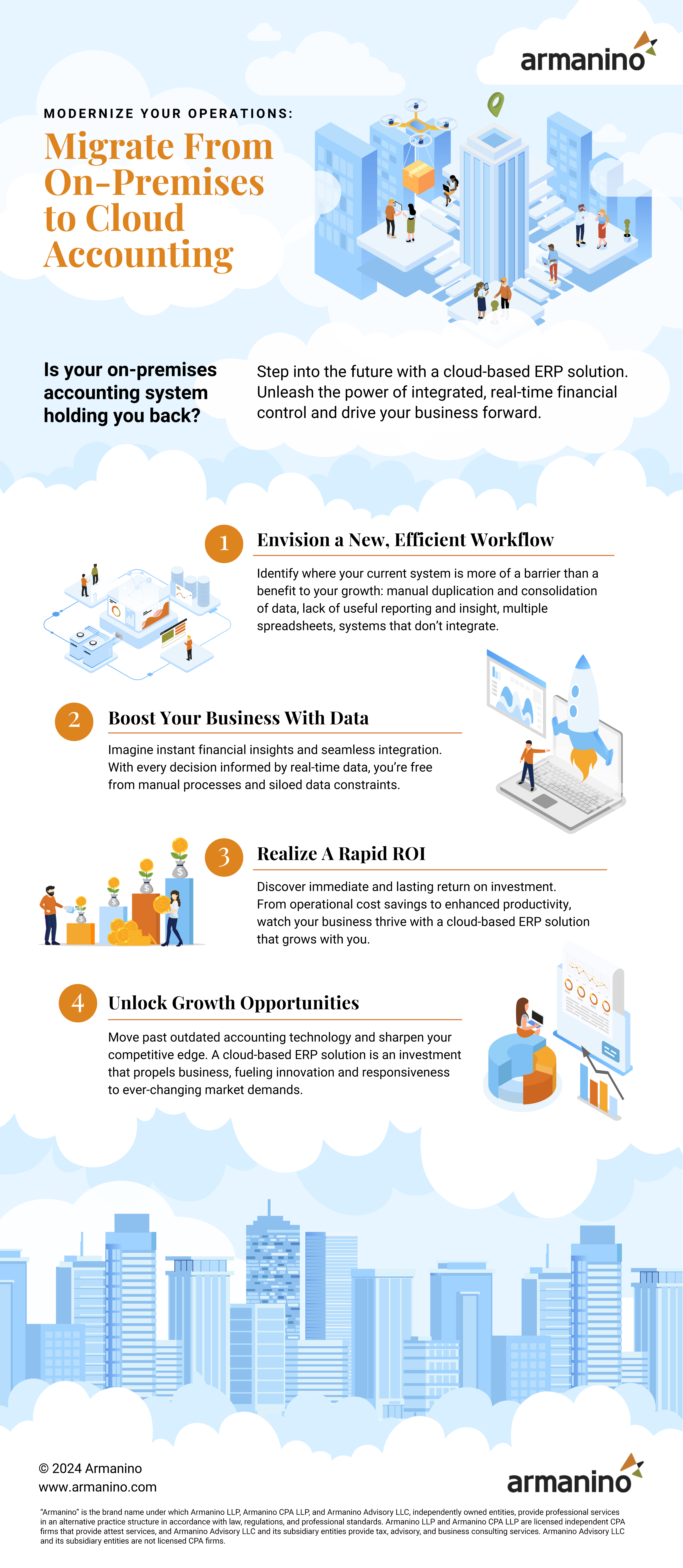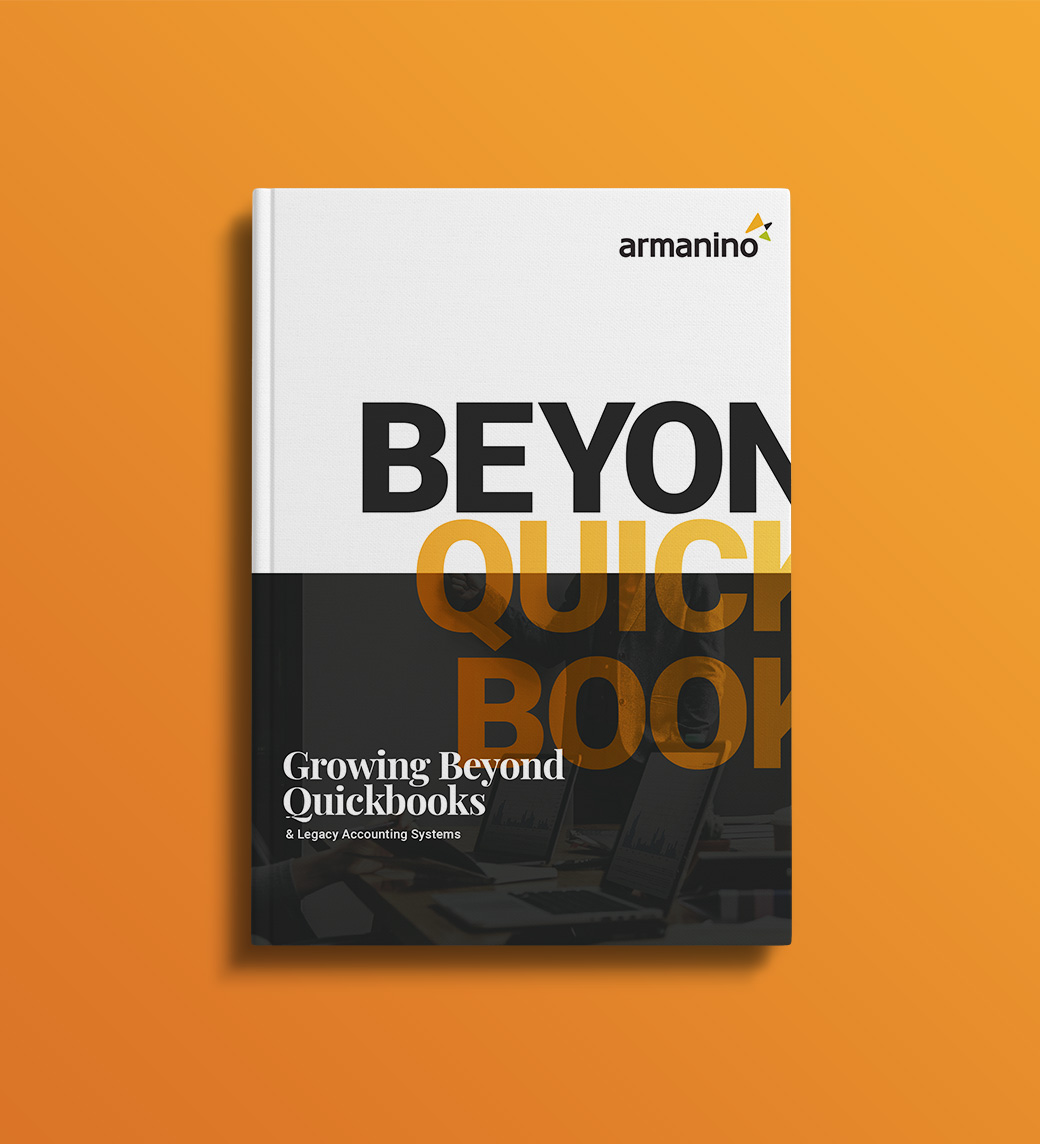
If your company still hasn't switched your enterprise applications to a cloud business application software, there are a number of compelling reasons to make the change, like efficiency, access to real-time data and data security. But another important reason that often goes overlooked is the effect of your software choices on your staffing. The finance leaders of tomorrow don't want to work with yesterday's tools.
I've worked with small and medium-sized businesses over the last few years as cloud accounting tools have risen to prominence. In that time, I've noticed there's often a generational divide between companies that insist on using desktop applications and those that have moved to the cloud.
Baby boomers have been able to budget, file taxes and manage payroll with desktop applications, and whether it's the expense of switching, the work involved in learning new software or distrust of cloud security (more on that later), many are reluctant to change.
But the new generation of finance professionals has grown up with the cloud — they communicate, bank and shop there — and cloud accounting software allows them to ditch spreadsheets and manual reconciliations, automate repetitive processes and turn data into insightful analysis. They don't want to be hamstrung by inefficient desktop software. So as your current team retires or leaves for somewhere more cloud-friendly, you'll have a harder time identifying and attracting talent that is willing to work with your outdated applications.
And don't wait for desktop tools to see a resurgence. Software companies aren't spending the bulk of their research and development dollars on desktop applications anymore. Even desktop accounting stalwart Intuit is focusing its future business strategy on cloud solutions like QuickBooks Online.
Meanwhile, the technological advances that are predicted to revolutionize the finance profession (like cryptocurrency, blockchain and AI) aren't technologically feasible without massive processing power, the kind that is only available in the cloud. While your current desktop solution may chug along now, it literally won't be able to function in the near future.

Want to display this infographic on your site? Copy and paste the following code. Be sure to include attribution to armanino.com with this graphic.
Switching to cloud accounting software won't just make you more attractive to new hires, it will also empower your current finance team. You'll be able to integrate other best-of-breed business software, including your CRM and ERP. This means your staff will no longer need to spend hours or days exporting data from one system, manually combining data sources in spreadsheets, and then uploading to other programs to continue the process.
Instead of crunching numbers, they can focus on reviewing and digesting information, and can turn that information into dashboards populated with always up-to-date data and meaningful visual analytics that the decision-makers of your organization can understand and embrace. For the future generation of finance leaders, the possibility of transitioning from being transaction processors to decision support and leaders of strategy is an enticing one — and your company can leverage that as it seeks to retain rising stars and identify new talent.
The decentralized nature of cloud software also allows a level of collaboration that is impossible on the desktop. You can eliminate on-site support calls, all-hands meetings and emailing exported spreadsheets or transferring data via flash drive or file server. Instead, stakeholders can access the software and relevant data from any web browser, and can log in from anywhere to solve the problem together.
Concern about information security has been one of the main reasons finance teams have resisted moving to the cloud. But on-premise applications are now significantly more exposed to danger than today's cloud accounting tools. Software upgrades, even for unrelated programs, can make your server inaccessible, and insufficient backup strategies can let you down if you have system problems. And it's easy to lose all your data if your machine experiences a power surge, there's a fire at your organization, or a disgruntled employee wants to wreak havoc on your business.
In contrast, cloud software providers have a vested interest in keeping your finance information safe, secure and accessible. Most feature redundant servers, generators and network components — so even if one goes down, your information is still available to you via other servers. Your data is backed up in multiple locations, and you can roll back to snapshots of earlier data in case there are problems.
From a security standpoint, your cloud data is heavily encrypted, and you can set levels of control over user access. Users get individual passwords, and granular access controls allow you to specify what data is accessible by which members of your organization. You can even enforce two-factor user identification for an extra layer of security.
Making the move to the cloud is essential for the future of your business. Without it, you limit the strategic value of your company's financial data, compromise the safety of that data, and make yourself less attractive to potential hires. By adopting cloud accounting software, you can demonstrate to current and prospective finance team members that your organization is forward-thinking, and that you're investing in their success. Our business application software consultants are ready to help you start planning your switch to a cloud accounting solution.
To learn more about modernizing your ERP, enabling lasting change and setting your business up for sustainable growth, reach out to our experts.


